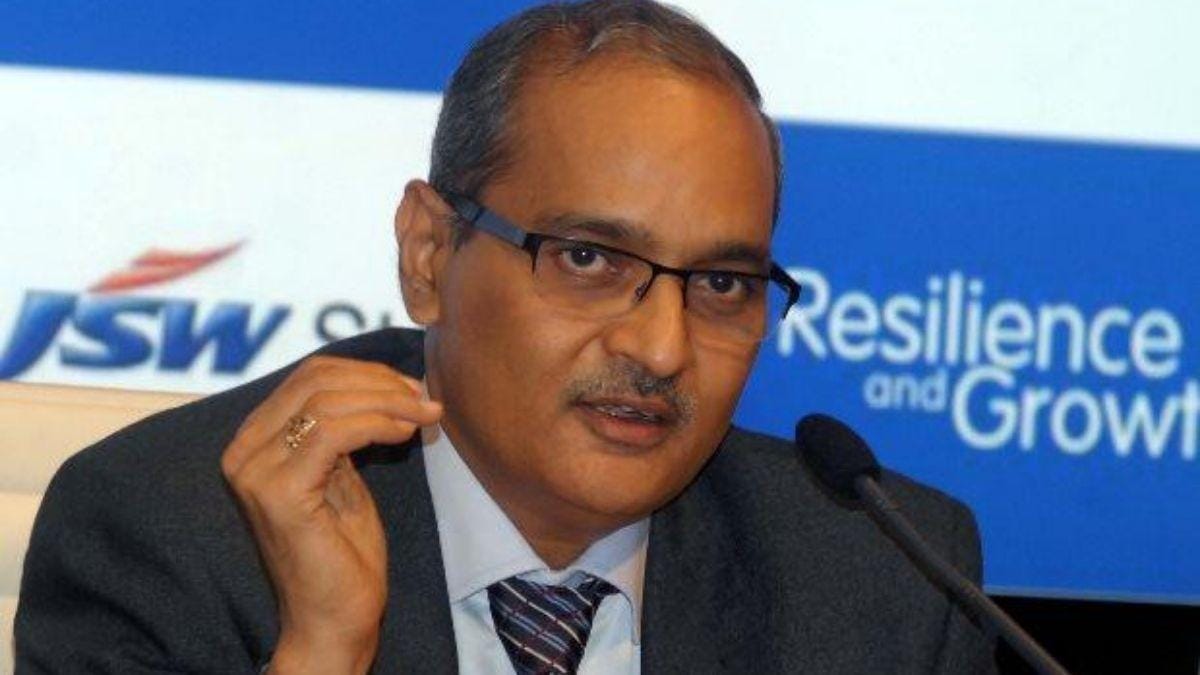Seshagiri Rao of JSW Steel says domestic steel demand likely to go up. Despite the hit incurred in steel demand in the aftermath of the COVID-19 pandemic, steel prices on the trail have risen for two months. JSW Steel Joint Managing Director and Group Chief Financial Officer Seshagiri Rao says a strong trend is visible from both government expenditure and consumer side.
Seshagiri Rao, joint managing director and group CFO, JSW Steel, said in an interview that demand is rising from the home goods, packaging, logistics and construction industries.
JSW Steel posted net loss of some ₹582 crore in the June period. Year-on-year, sales plummeted from some ₹19,407 crore to some ₹11,454 crore, as COVID-19 and the national lockdown culminated in a collapse in the market for local steel. JSW Steel’s Q1 output fell from 3.75 million tons a year earlier to 2.8 million tonnes.
Domestic Steel More In Demand
The firm applied a further ₹1,000 crore to its gross net debt, totalling around ₹54,527 crore, or 5.74 times its operating profits, relative to 4.5 times at the end of March. Plenty of stock write-downs by broking companies accompanied the report, both concerned about the net debt rate.
“Retail sales picked up quite well this quarter. The impact of covid-19 has not been uniform across India; urban areas and south India were affected more than the north and east. We’re seeing rural demand grow well. The auto sector has also improved from April. We’re seeing that at the biggest passenger vehicle makers, Maruti and Hyundai, schedules are improving, so we expect to see traction soon in passenger vehicles. We’re gradually replacing exports with domestic sales,” Seshagiri Rao stated.
“Globally, coking coal prices are coming down from $140-142/tonne to about $120/tonne. Production has already started from our Odisha iron ore mines; we produced 1.2 million tonnes (mt) in July and have started despatching to Dolvi, Salem and Vijayanagar, so our captive iron ore use will go up this quarter. Overall, the cost structure will benefit.” Seshagiri Rao stated.
More To The Figures
“I understand the concern,” said Rao, trying to allay the anxiety of the investor. “Even we are not comfortable with this high leverage. But the way I look at it is that this year, Ebitda (earnings before interest, tax, depreciation, amortization) was ₹1,341/tonne. Compared with ₹3,726/tonne tonne in Q1 FY 20.
The debt has grown in absolute numbers owing to the initial payment of some ₹1,250 crore. For the Odisha mines, which can be balanced against potential state royalty payments.
At the Dolvi (Maharashtra) plant, about 16,000 crore of debt came from increasing output by 5mt. The cumulative Ebitda would be significantly higher than the cumulative debt. Also after this plant is opened later this year, he added.
Seshagiri Rao stated that “With BPSL and the (related) debt, we will explain the structure once the BPSL plan is approved and we will work in a manner that will not pressurize our overall ratios. I cannot comment on whether we will bring in a partner at this point. I see BPSL in its final lap and the cases will be disposed off soon. We are ready to implement the plan.”
“I see India getting back to normalcy hopefully, by September-October,” Rao mentioned.


